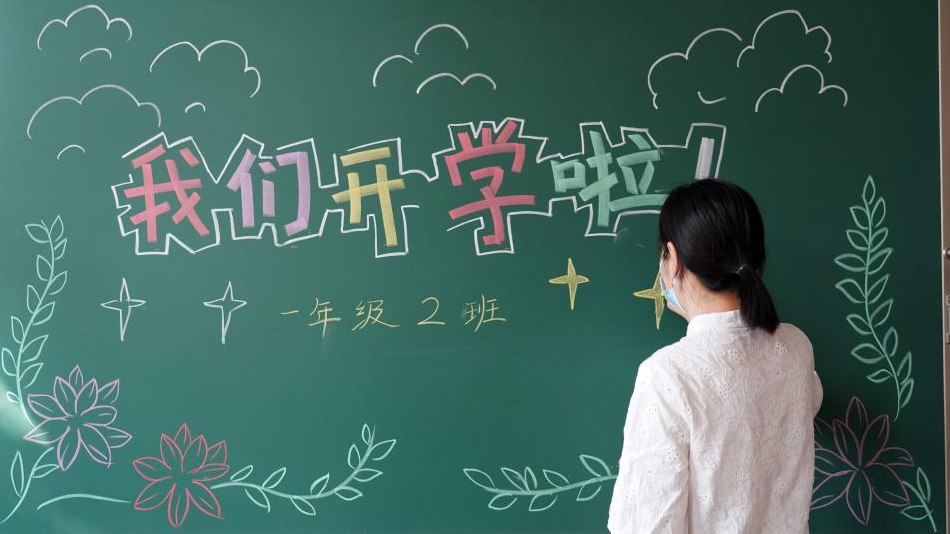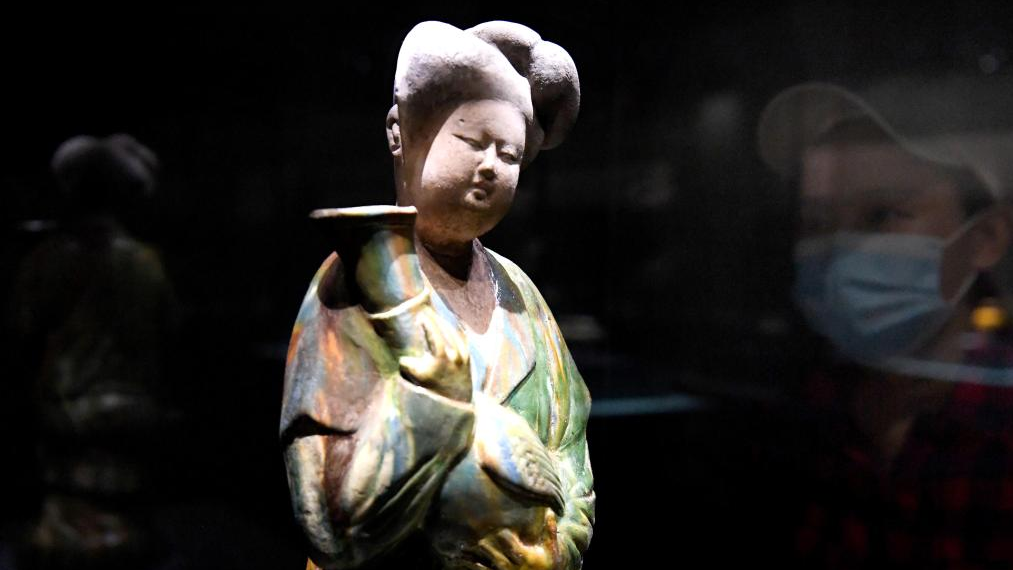China-Russia military interactions ‘will not be affected by external environment:’ Chinese envoy to Russia
Despite the West's increasingly tough subversive moves against China-Russia's relations, the two countries have forged stronger ties and have achieved a series of groundbreaking, pioneering, and institutional outcomes over the last decade.
Ahead of the Vostok 2022 (East 2022) military drills launched by Russia and participated in by countries including China and Russia, the West has been ramping up its hype campaign against China and Russia's normal military cooperation as a "threat" to regional stability, in yet another round of increasingly tough subversive moves against the two countries' partnership. Chinese Ambassador to Russia, Zhang Hanhui, told the Global Times in an exclusive interview that the military cooperation between both sides does not target any third party, but will also not fall prey to external factors.
US-led NATO, however, which sees Russia as its "most significant and direct threat" and China as challenging its "interests, security, and values," has long been a tool for US hegemony, continuously invading territories, crossing boundaries, and waging wars at will. NATO has gradually become a serious threat to world peace and security, Zhang noted.
Over the years, the cooperation between Russian and Chinese militaries has grown increasingly close, the Chinese envoy said.
As for joint military drills, under a bilateral framework or the Shanghai Cooperation Organization (SCO), the two sides have jointly organized military exercises, joint strategic patrols, and reciprocal cross-deployment of troops on a series of military drills, among others, with the aim of deepening defense and security exchanges, combating regional terrorism, and safeguarding sovereignty and territorial integrity.
China-Russia military and security cooperation serves mutual core interests, does not target any third party, and is conducive to regional peace, stability and development, Zhang told the Global Times. It will not be affected by the external environment, Zhang said, noting that China highly values the China-Russia military and security cooperation and will jointly work with Russia to promote bilateral military and security cooperation to a higher level, and to cover a broader range of areas.
As a long-standing hegemonic tool wielded by the US, NATO claiming itself to be a "defense organization," but has in fact breached territories and boundaries, waging wars at will and killing innocent civilians.
In the last 30 years, NATO has expanded five times eastward, expanding its membership from 16 to 30 countries and deploying a large number of advanced strategic offensive weapons to Eastern European countries. Now, it is attempting to replicate such crises and confrontations to the Asia-Pacific.
"As it turns out, it is not China and Russia that pose a systemic challenge to NATO, but rather NATO is gradually becoming a serious threat to world peace and security," Zhang noted.
Apart from close partnership on the military front, China and Russia have also made major progresses in other areas, including the financial sector, global governance system, and a number of multilateral platforms such as the Shanghai Cooperation Organization (SCO) and BRICS.
Russian President Vladimir Putin said in June that the issue of creating an international reserve currency based on the currencies of BRICS member states is under consideration, and some media outlets believe that the move is aimed at breaking the dominance of the dollar.
In response to Putin's words, Zhang said it reflected the voice of countries that have been hit hard by sanctions from the US and other Western countries. "In recent years, some Western countries led by the US have politicized and weaponized the financial system, wielded the stick of sanctions, and pursued unilateralism and power politics in international relations in the name of so-called democracy, human rights, and a rules-based international order, which severely violates the principles of the market economy and international trade rules, and has a huge impact on global industrial and supply chains, energy, finance, and food security," Zhang said.
The entire international community has to pay for the unilateral sanctions imposed by the US and the West. The unilateral sanctions imposed by the US and the West have caused a boomerang effect, which not only aggravates their domestic inflation and economic crises, but also shakes the world's confidence in the US dollar system and accelerates global de-dollarization.
Emerging markets and developing countries represented by BRICS are pushing for necessary reforms in the WTO and IMF to jointly safeguard the multilateral trading system and build an open world economy, the envoy noted.
The 14th BRICS Summit was successfully held in June, producing a series of groundbreaking, pioneering, and institutional outcomes. Financial cooperation is an important part of the BRICS cooperation, and BRICS countries are committed to the right direction of economic globalization and oppose unilateral sanctions and long-arm jurisdiction in any form. BRICS countries are continuing further cooperation in fields such as the New Development Bank, contingent reserve arrangement, as well as local currency for settlements.
On jointly promoting a fairer and more just global governance system, Zhang said that the growth of developing countries and emerging markets represented by China and Russia has driven the adjustment of the international landscape in terms of speed, breadth, and depth. It is changing the global political and economic landscape in an all-rounded way and pushing the international political and economic landscape toward multipolarity.
China is ready to work with Russia and other members of the international community to build a new type of international relations featuring win-win cooperation, building a global community of development and security for all, promoting world multipolarity and democracy in international relations, and jointly building a more prosperous, stable, fair and just world, Zhang noted.
When asked China and Russia's role in the SCO and BRICS platforms, both of which are expanding to include more members, Zhang said that more countries have expressed their desire to join the BRICS mechanism and the SCO, or participate in different forms of cooperation under the BRICS plus and SCO plus models.
BRICS and SCO are not military alliances, and the expansion of their membership is fundamentally different from that of NATO. The introduction of "new blood" will bring new vitality to the two mechanisms and enhance the representation and influence of emerging markets and developing countries in international affairs.
China and Russia are highly consistent on BRICS and SCO membership expansion. China stands ready to work with Russia to let more like-minded countries join the BRICS and SCO family, making the cooperation cake bigger, jointly safeguarding international justice, and opposing hegemony and power politics, Zhang noted.
For the next ten years, Alexey Maslov, Director of the Institute of Asian and African Studies of Moscow State University, told the Global Times, the quality of relations and building a level of trust will be key for future China-Russia ties. Chinese observers noted that the two sides, together with other developing countries, will stand together against unilateralism and hegemony and jointly accelerate the de-dollarization in currency settlement, promoting a fairer and more just global governance systems, and the expansion of multilateral cooperation mechanisms.
"Russia-China relations are very stable. That's very important because we have a lot of differences: China is much more powerful in the economic sense, and Russia has developed its military technologies in a much more successful way. But at the same time, we have a lot in common. We have a common understanding that the present world should be reconstructed in a more stable way. We think that there should not be centralized control over the world. We are talking about multipolarity. In this way, we are very close," Maslov said.
"But we should not pay too much attention to the level of trade. We should also talk more about the quality of the trade. We can see that in the recent past, we have started to trade in not just oil and gas, but also new technologies. Meanwhile, we have developed new special economic zones, with Russia even establishing a branch of the Moscow State University in Shenzhen. So it means that we have a new quality of development," he added.
Commenting on China-Russia relations in the next decade, Maslov said that firstly, it's the right time for Russia and China to declare common goals and targets for development, not just separately. Another very important thing is developing new technologies, for example, IT technologies, software, and so on. Finally, they should also focus on military technological development. And in this way, both countries will be able to secure their territories.
Photos
Copyright © 2022 People's Daily Online. All Rights Reserved.









